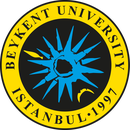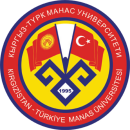
International Conference on Eurasian Economies
11-13 October 2012 – Almaty, KAZAKHSTAN
Paper detail
Paper ID : 425
Status : Paper published
Language : English
Topic : International Trade and Globalization
Presenter: Prof. Dr. Ayşen Hiç Gencer
Session : 2A International Trade
Gravity Modeling of Turkey's International Trade under Globalization
Gravity Modeling of Turkey's International Trade under Globalization
- Prof. Dr. Ayşen Hiç Gencer (Istanbul Beykent University, Türkiye)
Abstract
Gravity modeling in international trade is developed by Tinbergen and Poyhonen in the 1960s, inspired by Newton's standard gravity formulation. This model suggests that the volume of trade between two countries is proportional to the product of their national income and inversely proportional to the distance between them. This study attempts to answer the question whether the gravity model is still valid for the case of Turkey today in the age of globalization and declining transportation costs due to improvements in logistics and technology. To this end, Turkey's imports as well as exports data with respect to all the countries of the world for the 16 years between 1993 and 2008 are analyzed. The results show that the gravity model, even in its basic form, is still powerful in explaining the trade volumes between Turkey and all other countries. In addition, the basic model is extended to analyze Turkey's trade with specific country groups such as the EU countries, the Islamic countries, the former Soviet Union countries, and the Central Asian countries. The analysis concludes that except for the Central Asian countries, Turkey's trade is not specialized with any particular country group. The 1995 Customs Union with the EU or any other step already taken towards full membership into the EU has not significantly increased Turkey's trade volume with the EU members over the amounts predicted by the basic version of the gravity model for any country pair of similar distance and GDP levels.
JEL codes: F17, F10
Gencer, Ayşen Hiç (2012). "Gravity Modeling of Turkey's International Trade under Globalization" in Proceedings of International Conference of Eurasian Economies 2012, pp.31-34, Almaty, KAZAKHSTAN.
DOI: https://doi.org/10.36880/C03.00425
Session 2A: International Trade




